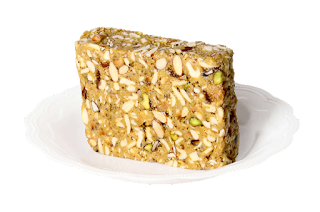Amingad Karadantu: A Taste of Karnataka's Sweet Heritage
In the heart of
Karnataka, a state in Southern India, lies a hidden gem of culinary delight
known as "Amingad Karadantu."
This traditional sweet treat holds not only the richness of flavor but also the
stories of a rich cultural heritage that has been passed down through
generations. Karadantu, which translates to "sticky" in Kannada, the
local language of Karnataka, is a confectionary masterpiece that embodies the
essence of local ingredients, craftsmanship, and tradition.
Origins
and Cultural Significance
Karadantu has its
roots firmly planted in the town of Amingad, situated in the Bagalkot district
of Karnataka. The name "Karadantu" is derived from two Kannada words:
"karadi" meaning fried and "kanti" meaning sugar syrup. Together,
these words aptly describe the two primary components of this sweet - the fried
ingredients mixed with jaggery syrup. While the basic ingredients of Karadantu
might seem simple, it's the intricate preparation and regional nuances that
make it a remarkable creation.
 |
| Amingad karadantu |
The significance of
Karadantu goes beyond its culinary appeal. It is often associated with
festivals, celebrations, and special occasions, serving as a symbol of
togetherness and sharing. The process of making Karadantu traditionally
involves family members coming together to create this labor-intensive
delicacy, further strengthening the bonds of community and tradition.
Ingredients
and Preparation
Amingad Karadantu's
uniqueness lies in the blend of wholesome ingredients that combine to create a
harmonious symphony of flavors and textures. The core ingredients include
edible gum (also known as gondh), dry
fruits, nuts, jaggery, poppy seeds, and ghee (clarified butter). These
elements come together to form a delectable concoction that is both healthy and
indulgent.
The preparation of
Karadantu is a meticulous process that demands expertise and precision. First,
edible gum is roasted in ghee until it puffs up, giving it a crunchy texture.
Then, a mixture of dry fruits and nuts, like cashews, almonds, and pistachios,
are roasted to enhance their flavors. The jaggery is melted to form a sticky
syrup, into which the roasted ingredients are mixed. This mixture is then
shaped into bite-sized pieces and rolled in poppy seeds, adding a delightful
nutty crunch to the exterior.
Taste
and Texture
The taste of Amingad
Karadantu is a remarkable blend of sweet, nutty, and slightly chewy textures.
The caramel notes from the jaggery syrup complement the earthiness of nuts,
while the crispy outer layer of poppy seeds contrasts with the slightly chewy
interior. The edible gum not only adds a unique texture but also offers health
benefits, as it is believed to aid digestion and provide warmth to the body,
especially during the colder months.
Preserving
Tradition in Changing Times
In today's fast-paced
world, where convenience often takes precedence, traditional culinary practices
like making Karadantu face the challenge of fading into obscurity. However,
efforts are being made to preserve this culinary art form. Local communities,
organizations, and even culinary schools are working towards promoting and
teaching the art of making Karadantu to younger generations. The goal is to
ensure that this cultural heritage remains alive and vibrant for years to come.
Culinary
Tourism and Beyond
Amingad Karadantu has also caught
the attention of culinary enthusiasts and tourists. It has the potential to
become a culinary attraction, drawing visitors to Amingad to witness the
creation process and savor the flavors that have been cherished by generations.
This not only benefits the local economy but also helps in preserving the
heritage and sustaining the livelihoods of those involved in its production.
In
Conclusion
Amingad Karadantu is more than just a sweet treat; it's a cultural treasure that encapsulates the essence of Karnataka's traditions, flavors, and community spirit. As we embrace modernity, it becomes crucial to remember and celebrate the rich heritage that lies within traditional recipes like Karadantu. This delectable delight serves as a reminder that behind every bite of food, there are stories of tradition, love, and the passing down of cultural legacies.


Comments
Post a Comment